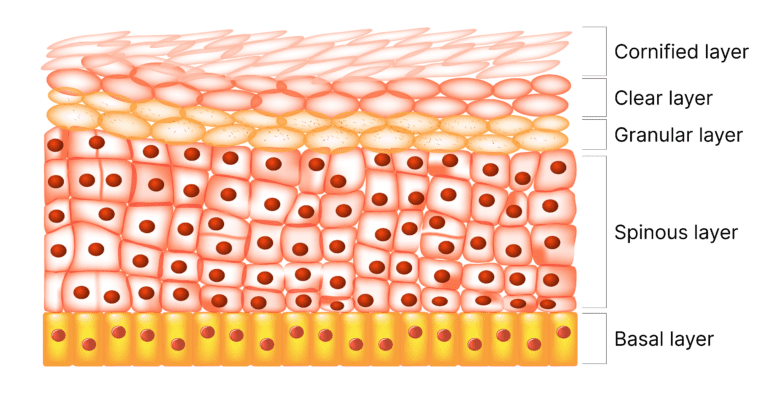ADHD is one of the most common childhood brain disorders. It is typically diagnosed in childhood and may continue into adulthood. Children with ADHD in the UK especially may have difficulties paying attention, controlling inappropriate behaviours (acting without considering the outcome), or being overly active. ADHD is a widespread mental health issue. Overall, ADHD in the UK affects 3.6% of children and 2% of adults. Many people experience inattention and changes in energy levels. This occurs more frequently and to a greater extent in people with ADHD than in people who do not have the condition. It can have a significant impact on their studies, work, and home life.
Symptoms and Diagnosis
A child with ADHD might:
- Being forgetful about certain tasks.
- Losing items frequently.
- Easily distracted; may not listen when spoken to; appears to be lost in thought frequently.
- Often loses things; is forgetful and disorganised in daily activities.
- When making decisions or taking action, there is a lack of forethought or consideration of the outcomes.
- Make careless mistakes or take unnecessary risks.
- Interfering with others while they are doing a task.
- Talking excessively.
- Have trouble taking turns.
- Have difficulty getting along with others.
Identifying whether a child has ADHD is a multi-step process. There are no single ADHD tests for Children, and many other problems, such as anxiety, depression, sleep problems, and certain types of learning disabilities, can have symptoms that are similar to ADHD. A medical exam, including hearing and vision tests, is one step in the process to rule out other problems with symptoms such as ADHD. About 1.5 million adults with ADHD in the UK have the condition, ADHD Action said, but only 120,000 are formally diagnosed.
Types of ADHD
ADHD In the UK is recognised by the NHS as a ‘neurobehavioural’ condition. The prevalence of ADHD in adults of ADHD in the UK is estimated to be 3% to 4%, with a male-to-female ratio of approximately 3 to 1. As many as 60% of people who had ADHD symptoms as children continue to struggle in adulthood of ADHD in the UK. In general, ADHD is classified into three types:
- Predominantly inattentive presentation: If a person conveys this type of ADHD, you may have more forgetfulness symptoms than impulsivity and hyperactivity. At times, you may struggle with impulse control or hyperactivity. However, these are not the key features of inattentive ADHD. Around 8.4 percent of children and 2.5 percent of adults have mostly inattentive ADHD in the UK. People who exhibit inattentive behaviour frequently:
- Miss details and are easily confused.
- Have difficulty focusing on a single task.
- Getting bored easily.
- Have trouble organising their personal opinions and learning new information.
- Lose pencils, papers, or other task-related items .
- Move slowly and appear to be daydreaming.
- Have trouble following directions.
- Predominantly hyperactive/impulsive presentation: A person must have at least six of these nine symptoms and very few of the symptoms of the inattentive type to have this type:
- Fidgeting /Squirming.
- When seated, getting up frequently.
- Running or climbing at inconvenient times.
- Having difficulty playing quietly.
- Excessive talking.
- Speaking out of turn or blurting something out.
- Interrupting.
- Frequently “on the move,” as if “powered by a motor”.
- Combined Type: If a person has the combination type, his symptoms do not exclusively fall into the inattention or hyperactive-impulsive behaviour categories. Instead, a combination of symptoms from both categories is displayed.
Most people, whether they have ADHD or not, illustrate some level of inattentive or impulsive behaviour. However, it is found more severe in people with ADHD in the UK. The behaviour is becoming more frequent and interfering with your ability to function at home, school, work, and in social situations.
Because symptoms can change over time, the type of ADHD a person has may also change. ADHD can be a lifelong issue. However, medication and other treatments can help a person improve his quality of life.
Causes of ADHD
Scientists have not yet identified the exact causes of ADHD. While there is considerable evidence that genetics play a role in ADHD, and several genes have been linked to the disorder, no single gene or gene combination has been identified as the root cause. ADHD is also known as Hyperkinetic Disorder Within ADHD in the UK. However, scientists are studying other possible causes and risk factors including:
- Brain injury.
- Environmental hazards (e.g., lead, smoking) during pregnancy or at a young age.
- Alcohol and tobacco use during pregnancy.
- Extreme stress during pregnancy.
- Premature delivery.
- Low weight at birth.
ADHD and School-Aged Children
Teachers and school administrators of ADHD in the UK can offer information to parents and doctors to help evaluate behavioural and academic issues and can help with behaviour modification. However, school staff cannot diagnose ADHD, make decisions about treatment or require that a student take medication to attend school. These choices with the child’s healthcare professional are only permissible for parents and guardians. Between 2% to 5% of school-aged children have ADHD in the UK.
If a student’s ADHD interferes with their ability to study, they may be eligible for special education under the Rehabilitation Act of 1973’s Section 504 plan (for kids who don’t need special education) or special education under the Individuals with Disabilities Education Act within ADHD in the UK. Study skills lessons, changes to the classroom environment, unique teaching methods, and a modified curriculum are all beneficial for ADHD children.
ADHD in Adults
ADHD can continue into adulthood. Some adults have ADHD but are not diagnosed. The symptoms can cause problems at work, at home, and in relationships. At older ages, symptoms may appear differently. Hyperactivity, for example, can manifest as extreme restlessness. When the demands of adulthood increase, symptoms can worsen. The prevalence of ADHD in the UK adult population is between 3% and 4% but the majority of these individuals are undiagnosed.
Adults who have ADHD may experience some different symptoms from childhood. According to the report of ADHD in the UK, Adults with ADHD may struggle to relax or talk excessively in social situations, but children with ADHD may climb and run around excessively ADHD in the UK suggests that Adults with ADHD may initiate connections spontaneously, engage in behaviour that seeks sensation, and have bad attitudes. Addictive behaviours are widespread and include substance abuse and gambling. People who presented differently as they aged as a result of this outgrew the DSM-IV criteria.
Treatments
The most effective way to treat ADHD is typical with a mix of medication and behaviour therapy. Behaviour therapy, particularly training for parents, is advised as the first line of treatment for primary school children (ages 4-5) with ADHD before medication is considered. Depending on the child and family, the ideal solution may fluctuate. Close monitoring, follow-ups, and making changes as needed along the way of parts of successful treatment plans.
Access To Work is a UK government programme that grants up to £62,900 per annum to support people with ADHD in the UK. It helps people who have a physical or mental health condition or disability for ADHD adult support and ADHD tests for children to take up. Personal Independence Payment (PIP), which was previously known as Disability Living Allowance (DLA), applies for ADHD adult support aged 16-24 years old ADHD in the UK.
ADHD in the UK has been depending on the effectiveness of the treatment and the acceptability of the medicine, many children and families might switch between different medication options. To restore functioning at home and at school, the treatment’s objective is to reduce symptoms. Here are some healthy behaviours that may help:
- Creating a healthy food routine that includes having enough fruits, vegetables, whole grains, and lean protein sources is important.
- Participating in daily physical activity based on age.
- Reducing the daily time spent in front of screens on TVs, computers, phones, and other technology.
- Getting the age-appropriate quantity of sleep every night.
Social skills training
If a person reports having trouble in social settings, social skills training may occasionally be helpful. Similar to Cognitive Behavioural Therapy (CBT), social skills training aims to instil new, more acceptable behaviours. With this, someone with ADHD can work and engage with others more effectively.
Parenting skills training
If your child has an ADHD diagnosis, parenting skills training can give you tools and techniques for understanding and managing their behaviours. Some techniques may include:
- Immediate rewards. Try using a point system or other means of immediate rewards for good behaviour or work.
- Timeouts. When your youngster becomes too hyperactive or out of control, use a timeout. Some kids learn how to respond more effectively the next time a situation like this arises by being taken out of a stressful or distracting one.
- Togetherness. Find time together every week to share a pleasurable or relaxing activity. During this time together, you can look for opportunities to point out what your child does well and praise their strengths and abilities.
- Effort for success. Structure situations in a way that allows your child to find success. For instance, you might allow them to have only one or two playmates at a time so they don’t get overstimulated.
- Stress management. To manage stress, use practices like meditation, breathing, and exercise.
Medications for ADHD
For ADHD adult support, medication is frequently a crucial part of the treatment of ADHD in the UK. It can be challenging to decide, though. Together, you and your doctor will decide whether medicine is a good alternative in order to reach the best decision. If so, find out from your doctor if you need to take medication simply during the workday or at night and on weekends.
ADHD in the UK specialists recommends methylphenidate as the first-choice medication ADHD test for children to treat children and adolescents, and amphetamines as the first-choice medication for ADHD adult support. Ritalin, the most famous methylphenidate of all, is available for ADHD in the UK, but only licensed for ADHD tests for children over six and not for ADHD adult support.
Central nervous system stimulants
These stimulants have an unexpected hypnotic effect on ADHD patients. Many people with ADHD in the UK see a decrease in hyperactivity and an increase in attention span as a result of this. Your focus and concentration are increased by the effect.
Common CNS stimulants used to treat ADHD in the UK include:
- Amphetamine-based stimulants (Adderall, Dexedrine, DextroStat)
- Dextromethamphetamine (Desoxyn)
- Dexmethylphenidate (Focalin)
- Methylphenidate (Concerta, Daytrana, Metadate, Ritalin)
Nonstimulant medications
Some non-stimulants function by raising the brain’s norepinephrine levels. Norepinephrine is claimed to improve memory and focus.
These non stimulant treatments used to treat ADHD in the UK include:
- Atomoxetine (Strattera)
- Antidepressants like nortriptyline (Pamelor)
Other nonstimulant medications can also help with ADHD. It’s not fully known how these medications help with ADHD, but there’s some evidence they help certain chemicals work better in the part of the brain involved with attention and memory.
Potential side effects of stimulants and nonstimulants
The medicines licensed for ADHD in the UK are a range of stimulants and one non-stimulant. Although some side effects are involved with ADHD drugs, your doctor can work with you to determine the proper dosage. Although they often are stronger for stimulants, the more prevalent side effects of stimulants and non-stimulants are fairly comparable.
These side effects can include:
- Headache
- Trouble sleeping
- Stomach upset
- Nervousness
- Irritability
- Weight loss
- Dry mouth
The more serious side effects of these drug types are rarer specifically for ADHD adult support. For stimulants, the serious side effects may include:
- Hallucinations (seeing or hearing things that aren’t there).
- Increased blood pressure.
- Allergic reaction.
- Suicidal thoughts or actions.
For nonstimulants, the serious side effects may include:
- Seizures.
- Suicidal thoughts or actions.
FAQ about ADHD
According to the evidence of ADHD in the UK, ADHD is a genetic disorder that is passed down from parent to child. ADHD affects 5% of children and 3% of adults with ADHD in the UK. Genetic testing identifies ADHD in the UK and which drugs are the most effective and the appropriate dosage for their DNA. ADHD appears to run in some families. At least one-third of all fathers who had ADHD as a child have children with the disorder. Furthermore, the majority of identical twins have ADHD. Researchers in the United States and Europe are currently working to determine which genes, specifically, make a person susceptible to ADHD adult support. Recently UK scientists are looking into a variety of genes that may play a role in the development of ADHD in the UK, particularly those linked to the neurotransmitter dopamine. Because ADHD is such a complex disorder, they believe it is most likely caused by at least two genes.
There is still much work to be done on the genetic aspect of ADHD. The discovery of genes that contribute to ADHD may make it easier to diagnose the condition. It could also lead to better treatments for ADHD adult support suffering from various ADHD symptoms.
I am item content. Click edit button to change this text. Lorem ipsum dolor sit amet, adipiscing elit. Ut elit tellus, luctus nec mattis, pulvinar dapibus leo.
I am item content. Click edit button to change this text. Lorem ipsum dolor sit amet, consectetur adipiscing elit. Ut elit tellus, luctus ullamcorper mattis, pulvinar dapibus leo.
I am item content. Click edit button to change this text. Lorem ipsum dolor sit amet, consectetur adipiscing elit. Ut luctus nec ullamcorper mattis, pulvinar dapibus leo.
I am item content. Click edit button to change this text. Lorem ipsum dolor sit amet, adipiscing elit. Ut elit tellus, luctus nec ullamcorper mattis, pulvinar dapibus leo.








